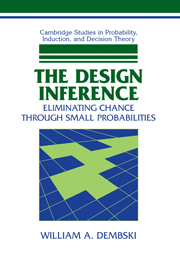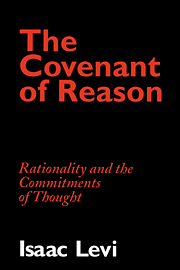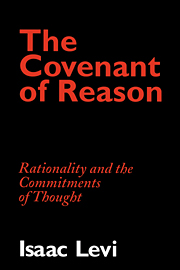The Design Inference
The design inference uncovers intelligent causes by isolating their key trademark: specified events of small probability. Just about anything that happens is highly improbable, but when a highly improbable event is also specified (i.e. conforms to an independently given pattern) undirected natural causes lose their explanatory power. Design inferences can be found in a range of scientific pursuits from forensic science to research into the origins of life to the search for extraterrestrial intelligence. This challenging and provocative 1998 book shows how incomplete undirected causes are for science and breathes new life into classical design arguments. It will be read with particular interest by philosophers of science and religion, other philosophers concerned with epistemology and logic, probability and complexity theorists, and statisticians.
- Provides a solution to the long-standing problem of how to eliminate chance through small probabilities
- Breathes new life into classical design arguments, offering a challenging new method for detecting intelligent causes
- Of interest to a wide range of philosophers concerned with science, religion, epistemology, and logic, as well as probability and complexity theorists, and statisticians
Product details
May 2006Paperback
9780521678674
264 pages
229 × 162 × 12 mm
0.37kg
Available
Table of Contents
- Preface
- Acknowledgments
- 1. Introduction
- 2. Overview of the design inference
- 3. Probability theory
- 4. Complexity theory
- 5. Specification
- 6. Small probability
- 7. Epilogue
- Notes
- References.








